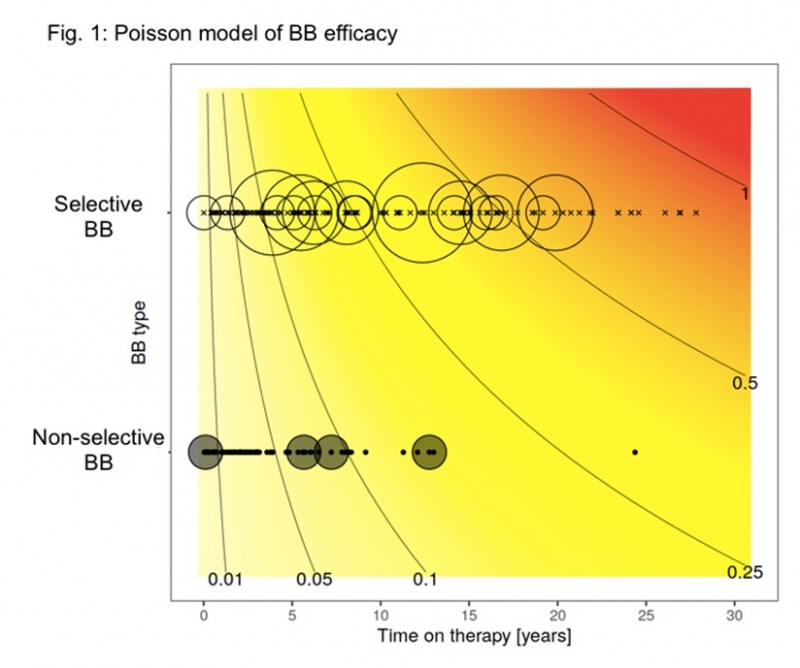LONG-TERM FATE OF AN UNSELECTED COHORT OF CONGENITAL LONG QT SYNDROME PATIENTS DIAGNOSED IN CHILDHOOD
OBJECTIVES: Congenital long QT syndrome (LQTS) is heterogeneous disorder with type-specific risk for major arrhythmic event (MAE). We performed retrospective analysis of unselected cohort of pediatric LQTS patients.
METHODS: All paediatric patients (N=224, female 119, 53 %) diagnosed with LQTS (Schwartz score ≥1.5points and/or presence of a pathogenic or likely pathogenic variant) between July 1985 and December 2021 at median age (IQR) 11.7 (6.5-14.2) years were included. Patients were followed-up for a median of 8.8years.
RESULTS: Reasons for presentation were LQTS related symptoms (N=91, 40.6% ), positive family history (N=66, 29.5%), incidental finding of prolonged QTc (N=37, 16.5%), positive pre-participation screening (N=30, 13.4%). QTc interval was median 482ms, the median Schwartz score was 4.0 points. Betablockers (BB) were administered in 202 patients (90.2 %). Twelve patients died from cardiovascular cause (5.4%) yielding a 5/10/20 years survival probability of 97.2/94.7/91.5%. Freedom from MAE defined as either sudden cardiac death/arrest or appropriate ICD therapy after diagnosis of LQTS was 92.9/87.7/83.5%. MAE was independently predicted by early presentation (HR 14.65, p=0.0013), Schwartz score (HR 1.77, p=0.0022), QTc (HR 1.018, p<0.001) and presence of LQTS3 (HR 34.54, p=0.025). MAE burden decreased in patients on non-selective BB in comparison to selective BB (Fig. 1) regardless of other variables (gender: HR 0.15, p=0.0121, early presentation: HR 0.11, p<0.0001, Schwartz score: HR 0.16, p<0.0001, LQTS3: HR 0.15, p=0.0169 and QTc: HR 0.14, p=0.0096).
CONCLUSIONS: Patients with LQTS diagnosed in childhood had survival probability about 91.5%. Early presentation, Schwartz score, genotype and QTc duration were major predictors of MAE. BB therapy has shifted to non-selective BB over time, which significantly decreased MAE burden.


